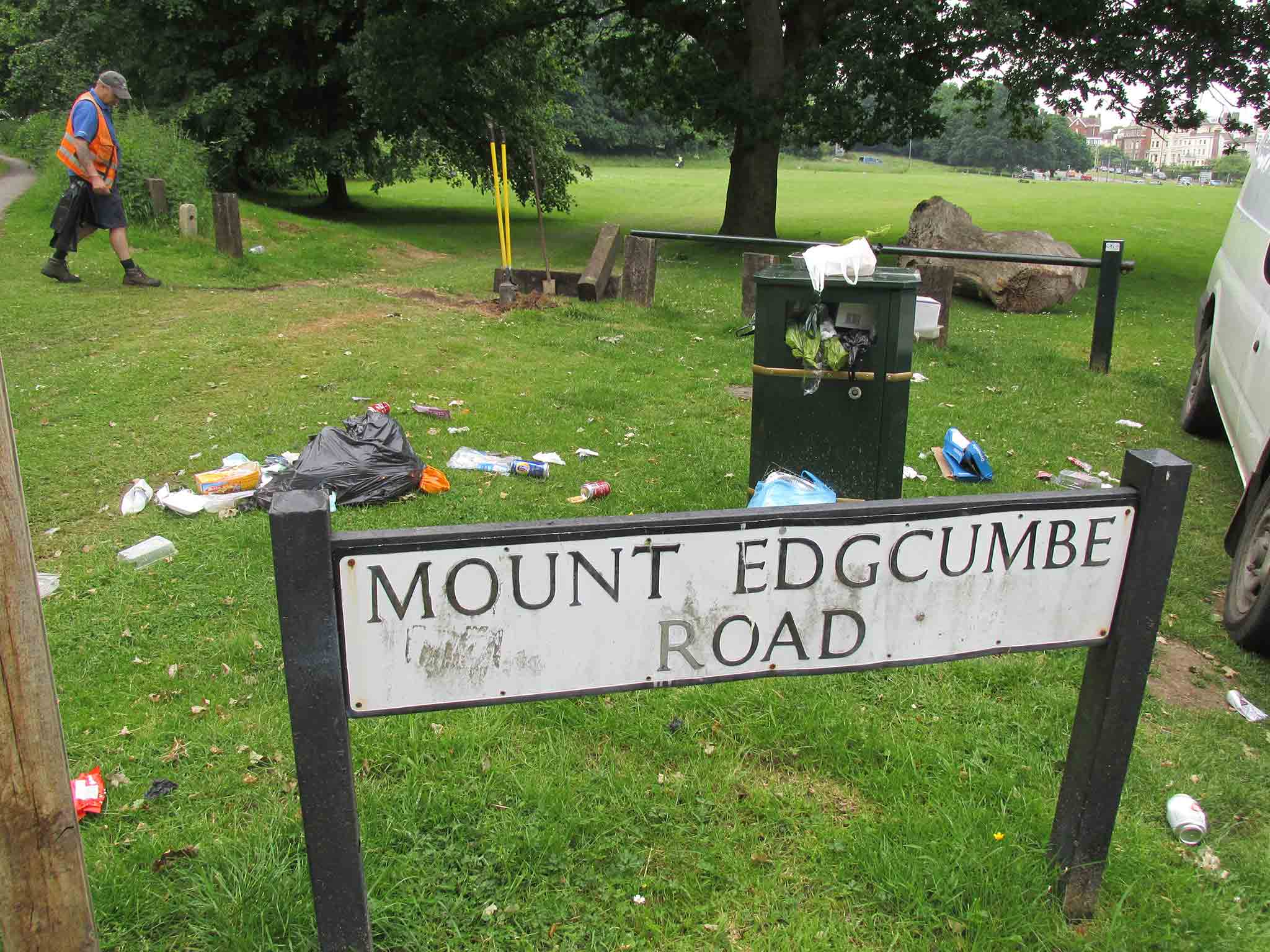Taxpayers are having to foot a bill of about £4,000 after travellers were finally moved on having occupied three sites in and around Tunbridge Wells.
The travellers, believed to be from the same family, set up camp in Tonbridge School late last month before moving to Cadogan Fields in St John’s Road and then, on Friday June 3, to the Lower Common in Tunbridge Wells.
After working with Tunbridge Wells Borough Council, six police officers visited the camp at 1.30pm on Tuesday, June 7 and issued a Section 61 order with a deadline of two hours to comply or be forcibly evicted.
The travellers left later that day, but the council is now counting the cost. It has already confirmed that £1,000 will be needed to clean up Cadogan Fields, and at least £500 may be required to repair the cricket pitch on the common.
With bailiff costs of up to £2,000 and court fees reaching at least £400, the public purse will bear the brunt of the occupations. The total cost so far of £4,000 does not include any costs for Tonbridge.
Steve Budden, warden for Tunbridge Wells and Rusthall Commons, said the travellers left behind a deer carcass, two large piles of garden waste and two fire pits on the lower cricket pitch.
However, the clean-up operation will be much easier than two years ago, when gypsies dumped a large quantity of items, including their own domestic waste, after occupying ‘The Bump’ – a piece of land in Rusthall east of the cricket pitch.
Regarding Tunbridge Wells Common, Mr Budden added: “They gained access to the site by moving a large tree trunk out of the way and driving on to the lower cricket pitch. This was against the bylaws.
“We asked them to leave on Saturday morning and with the help of the borough council tried to set a court date. But the police then moved in and by 3pm they were gone.
“This was a much less serious case than two years ago at Rusthall because this time the police remained on site after issuing them with a notice to leave, meaning they were not able to dump large amounts of rubbish, so I am grateful.”
Making the commons more secure could prevent future incursions but Mr Budden said: “If they want to get on to the land they can cut posts, etc; I can’t turn the common into an armed camp because the public need to use it and our maintenance vehicles need access.”
Joseph Jones, spokesman for the Gypsy Council, blames councils for not providing temporary ‘transit’ sites for the travelling community. He told the Times the situation has deteriorated in recent years.
“We used to have meetings to discuss this,” he recalled. “I was part of a transit site study in 2009 with the academic and housing researcher Pat Niner and the South-East England Regional Assembly when it still existed [it was disbanded later that year].
“The study concluded that local authorities should provide a transit pitch when travellers were in the area. This was a sensible and logical approach to the situation.”
There are currently no temporary sites offered by councils in Kent, and the community has adopted a more opportunistic approach. Mr Jones said: “Now it’s a case of if someone has got nowhere to stop they are just going to look for a place that’s least likely to attract attention and see what the response of the local authority will be.”
In the case of Tonbridge School and the Lower Common, however, they chose high-profile surroundings to set up camp.
This only serves to stoke up antagonism from local residents – even if the attitude of landowners and the councils has not been heavy-handed.
But on a national basis Mr Jones argues that councils in general have a confrontational attitude.
“They should be more flexible,” he insisted. “It’s an enforcement-led approach, they just want to try and move the problem somewhere else.”
Mr Jones believes the future is not bright for travellers, who represent the largest minority community in Kent. Attitudes towards them will only be exacerbated by the spectre of rising, uncontrolled immigration.
“We are a recognised minority and councils have a duty to provide alternative sites,” he said. “We’ve been part of this country for hundreds of years and there were always traditional stopping places.
“In recent times the local authorities have closed these down and fenced them off. And they haven’t replaced them with anything else. But people have got to stop somewhere.”
Tunbridge Wells Borough Council has said it is the responsibility of Kent County Council to offer transit sites.
The local body has a permanent site at Cinderhill Wood, near Matfield, while KCC operates a site at Heartenoak Road in Hawkhurst.
WHEN THE GYPSY FAIR CRIED FOUL
Horsmonden’s Gypsy Horse Fair is one of the biggest dates in the travellers’ calendar.
The event, in September, sees up to 3,000 travellers descend on the village green to trade horses and drive their ponies and traps or ride bareback through the streets.
It was banned by Tunbridge Wells Borough Council in 2000 with the approval of the then Home Secretary, Jack Straw, following incidents involving knives and firearms.
The council said the festival had ‘grown too big’, but the travellers claimed the decision was racially motivated and deprived them of their culture and heritage.
The fair was revived in 2006 after organisers took out public indemnity insurance.








